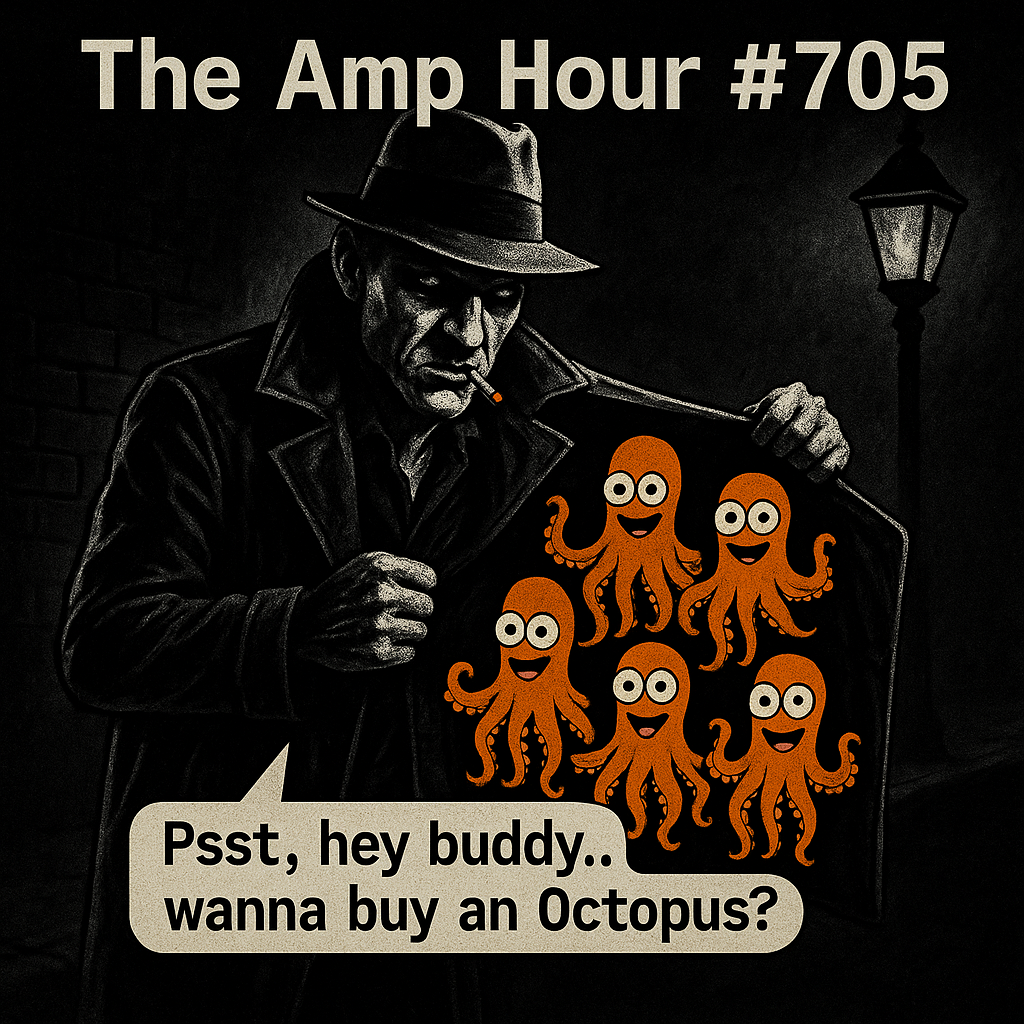Podcast Episode Details
Back to Podcast Episodes#705 – Psst…Hey buddy, wanna buy an Octopus?

- Contextual Electronics is “still a thing”.
- Sydney hosted the International Astronautical Congress (IAC). The IAC is the “big space event of the year,” held annually in a different city.
- Chris noted that US space funding seems low, leading some friends to move from NASA to private industry.
- Dave recorded two walkaround videos: a 30-minute bird’s eye view using a GoPro on a pole and a physical hour-long walkaround.
- Large companies had private stands, while smaller, two-man companies had sub-booths within their country’s larger rented stand (e.g., South Africa, Germany, Poland).
- Niche companies included those selling “space connectors,” described as regular connectors sold at potentially 10 times the price to space customers.
- Australia had a large presence, with stands for the country and individual states (Victoria, New South Wales, Tasmania) hosting local niche space gear firms.
- Dave toured a new, completely mobile Mission Control facility built into a semi-trailer van. This unit is designed as a generic platform with screens, server racks, and redundant power, allowing any space company to install their own servers and operate anywhere in Australia.
- An Australian company specialized in “Space lube” (lubricants for satellites and actuators), necessary because water-based lubricants would boil off or freeze up and cause gear to seize.
- Chris has a new “quasi obsession” with the old technology of DIN rail. He is using 3D printers to mount development boards onto DIN rail to organize his desk.
- DIN rail is common in Australia and Europe for electrical switchboards and automation equipment (PLCs, power supplies).
- Dave sent a photo of “Fish Pointer’s” organized desk, which Chris identified as using “Gridfinity,” an ad hoc, modular standard popular in the 3D printing community, often associated with Zack Friedman of Voidstar Labs.
- Dave runs a Creality K1 3D printer that is networked, allowing him to control and print remotely.
- Chris purchased a filament dryer for only $42 to combat the issue of filament going brittle due to moisture.
- Dave recounted his attempt to sort 330 tins of salvaged parts (feet, spacers, grommets) from vintage test gear.
- The space industry is currently “so hot” due to private funding, unlike the “dead” industry 10 to 15 years ago.
- It is now easy to book a payload slot on a launch vehicle like SpaceX. Dave said that Firefly was actually “begging” people to put payloads on its Moonlander to help fund the mission, though that’s source unknown. It was supported by CPLS as part of NASA.
- Published on 1 month ago